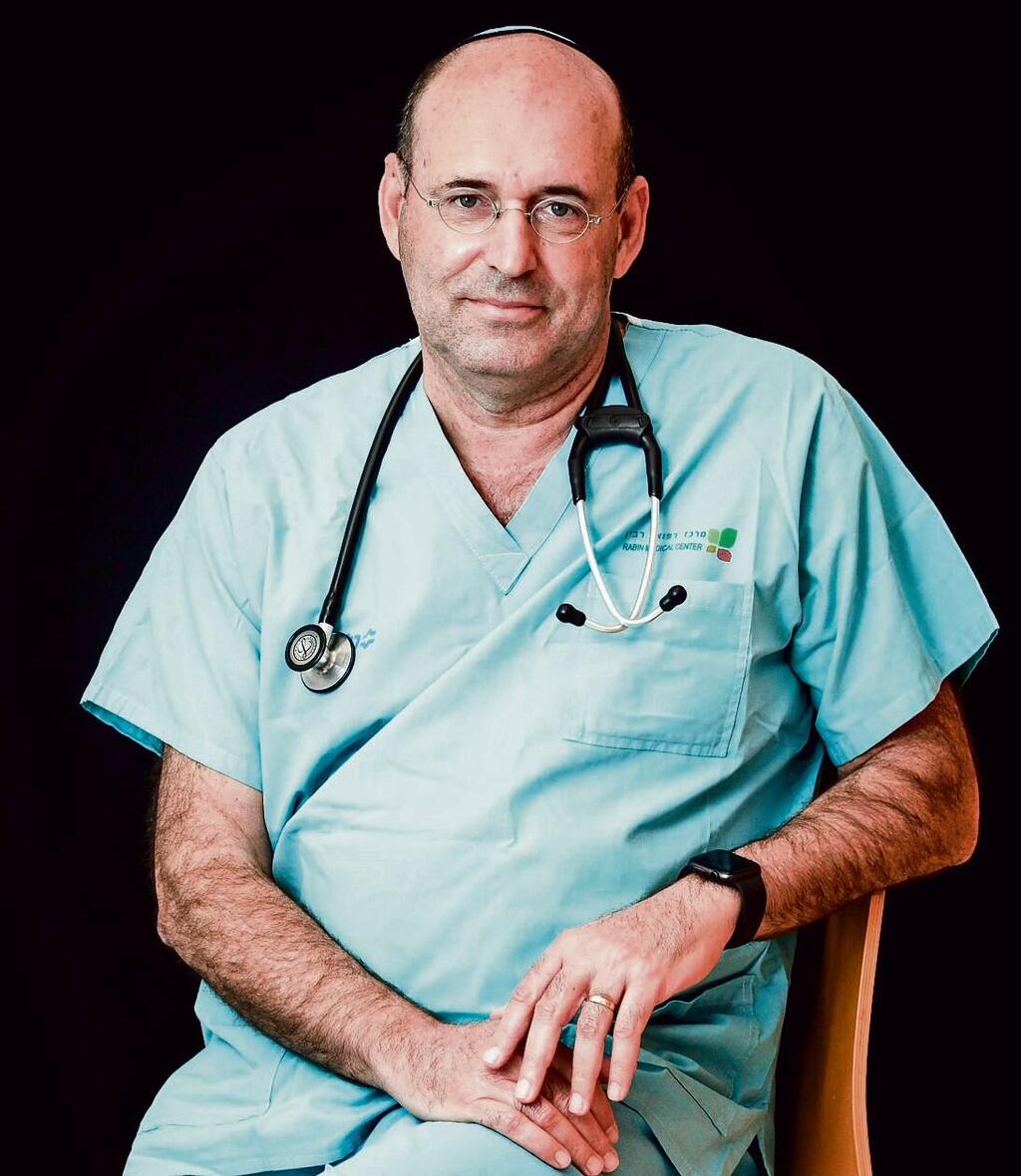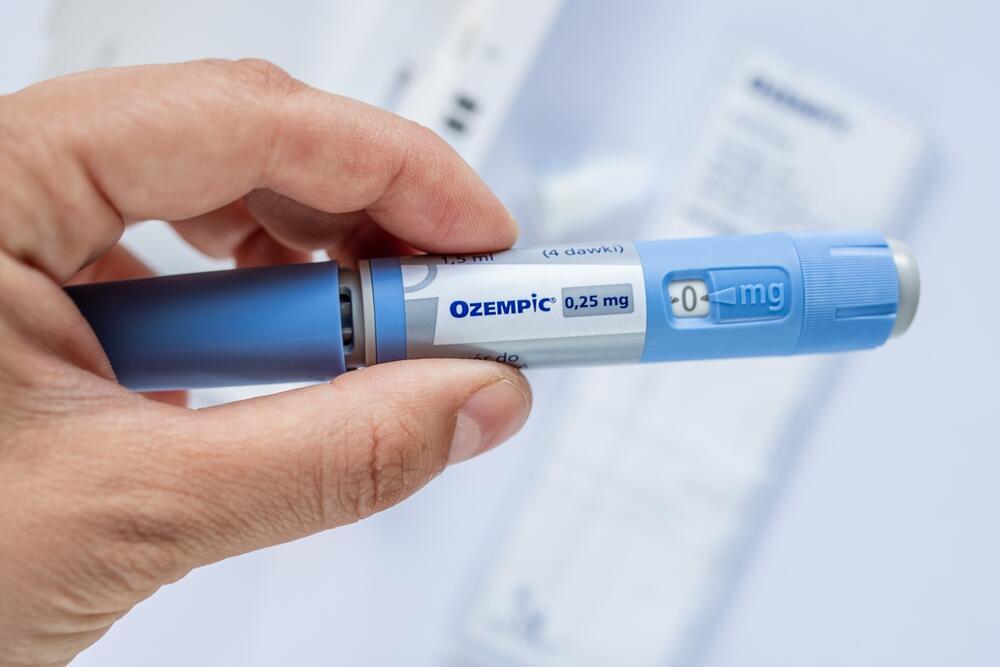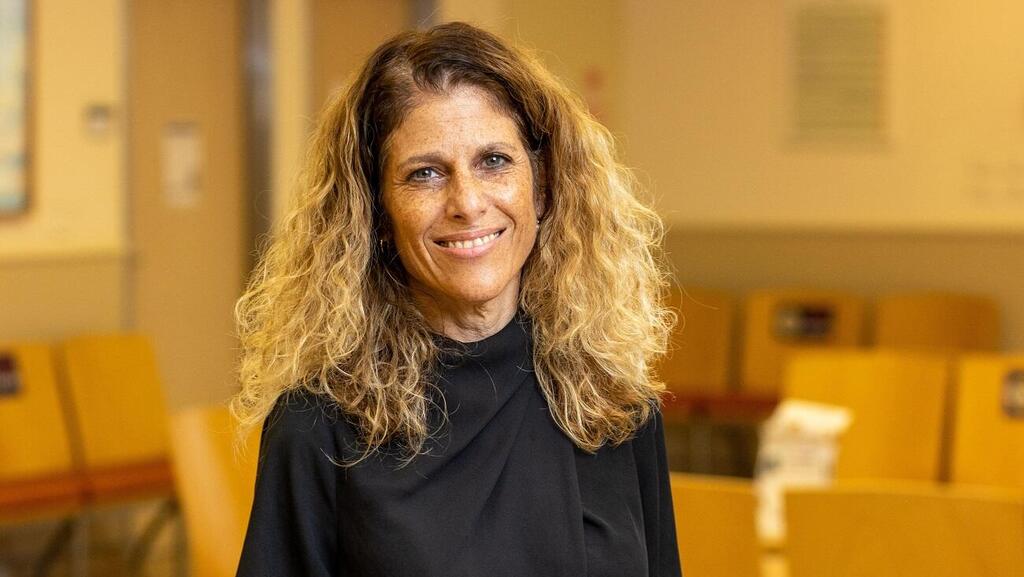Getting your Trinity Audio player ready...
Imagine getting up in the morning, brushing your teeth, drinking your coffee, taking a pill to stop you from gaining weight. Over the next few hours, you won’t feel hungry. When you finally are hungry, you’ll feel full after only a couple of bites.
Read more:
No dieting, no calorie counting, no cutting out carbs. You eat what you like, when you like. Your pants size which dropped with that extreme dieting you did two years ago is as tiny as ever. Life’s a bowl of cherries. Or lettuce.
This miracle isn’t just for you. If we are to believe the latest research, our lives will look like this in the very near future. Certain strong weight-loss medication is already on the shelves and more is in the final development stages.
Those in the pipeline, according to the latest reports, will bring about staggering weight loss of one-fifth to one-quarter of our body weight. If you weigh 200 pounds, you’ll get down to 160. If you weigh 180 pounds, you’ll easily be down to 145 pounds.
“It’s revolutionary,” says Dr. Gabriella Lieberman, head of Sheba Medical Center’s Obesity Center. “You can’t ignore the effects of the new weight loss medication. It’s not just about losing a great deal of weight, but rather the high proportion of people who can lose weight. It’s a dramatic change – by no means cosmetic.“
Prof. Dror Dicker, head of the Center for Weight Control at the Sharon Regional Medical Center and president of the Israeli Association for the Study of Obesity, is also very enthusiastic: “The next generation of anti-obesity medication will allow for dropping 20%-25% of one’s body weight, within the same success range as surgery.’
Until two years ago, we didn’t have the tools to either create or maintain weight loss. People took medication. They’d lose a little weight, give up and stop. Today, we have the tools to not only lose significant amounts of weight, but also maintain that weight loss. In five years’ time, the percentage of people with a BMI of over 30 (classified as obese) will be much lower than today – providing someone funds it.”
Trial and error
There’s nothing more annoying than not being able to zip up your favorite pants. But that’s the least of your problems if you’ve gained a drastic amount of weight. Over 60 illnesses, including diabetes, heart and cardiovascular diseases and even cancer are linked to excess weight. Obesity is the world’s fifth cause of death, on average shortening a life span by 3.2 years.
Every second Israeli is overweight. It’s higher among women than men and more prevalent in poorer communities. In children it gets worse as they get older: 20% of first graders are overweight. By seventh grade, that figure reaches 31.4%. A report published six months ago estimates the annual cost of Israel’s obesity epidemic at over NIS 20 billion.
But, thanks to a new generation of breakthrough medication, all this is about to change. The new medication can not only help us effortlessly shed the extra weight, but can completely change how we eat, interpret hunger and think about food.
These medications, some currently sold to treat diabetes, act on the hormones connected to hunger suppression. Using drugs to intervene with this mechanism allows us to change eating habits and reduce binge eating. Moreover, there are improvements in a number of important indicators including blood sugar levels.
Ongoing studies have shown unprecedented weight loss. Patients using these new drugs that mimic the activity of a hormone named GLP-1 have, depending on which drug was taken, decreased body weight on average by 12.4%-18%.
“GLP-1 is a natural hormone emitted in the intestine in response to food” explains Dicker. "It causes the pancreas to release insulin, making it effective as a drug for diabetes. And that’s not all: it goes up to the brain, affecting brain centers that suppress appetite and makes you feel you’re full.
GLP-1 basically tells us to stop eating. We now know that people living with obesity have lower GLP-1 levels than non-obese people and that their levels of the hunger hormone, Ghrelin, remains high after a meal. They don’t choose to be fat. Like people short of insulin or testosterone, their physiology simply lacks the signaling that controls hunger and satiety. The drug replenishes the missing hormone. We still don’t know whether this hormone is actually lacking among those suffering from obesity, so its use is a kind of trial and error.”
Ozempic - the GLP-1 antidiabetic injection - is the best known of the new generation weight-loss drugs. It’s proven so effective for weight loss that demand for Ozempic has broken sales records both in Israel and overseas.
Social media is awash with success stories of lives changed by the shot… and a black market is thriving too. Ozempic is marketed as an anti-obesity drug in double doses under the name Wegovy and its sales figures are predicted to reach $100 billion over the coming decade.
But it’s just the first of the new generation of safe and effective weight loss drugs set to revolutionize our minds and bodies. Some of these drugs are already in the phase 3 clinical trial stage - the final stage before FDA approval.
The up-and-coming weight loss star is Trizepatide (brand name: Mounjaro). Like Ozempic this too was developed to treat type 2 diabetes, but soon proved unprecedented weight loss benefits: Injected once a week, Trizepatide helps normalize the blood sugar level. It was approved last year by the FDA for treating type 2 diabetes. Although it hasn’t been approved for weight loss, it’s already used as a miracle off-label weight loss drug.
Studies suggest that it’s more effective than either Ozempic or Wegovy. Demand for the Trizepatide injection has soared to the extent that the drug manufacturer found it pertinent to issue a statement that the company “neither advances nor encourages its use for purposes not stated on the drug.”
Unlike Ozempic which mimics the activity of a single hormone, GLP-1, Trizepatide mimics the activities of two hormones naturally found in the body. It slows down the emptying of the stomach and creates a more extended period of satiety. It also suppresses appetite.
A few weeks ago, Trizepatide manufacturer, Eli Lilly, showed that trials had proven that the drug can help shed 22.5% of the body weight of an overweight adult. In phase 3 trials, participants lost over 50 pounds in 72 weeks. 63% of participants taking a higher dosage of 15 mg lost 20% of their body weight.
One lucky person who has proven the drug’s potential on her own body is 63-year-old diabetic, Mary Bruehl, from Oklahoma who is also overweight and suffering from a chronic illness damaging her liver functions. She explains that despite "doing everything right", her weight and blood sugar levels just kept increasing. "It just seemed like there wasn't anything I could do to get it off," said Bruehl. "My stomach didn't know an end to all the food in the world."
When she started Trizepatide treatment in September 2019, she lost 5.4 pounds each month. By ten months later, on July 1, 2020, she’d lost over 60 pounds. She says that as she shed the weight, she started feeling better and started exercising again. The drugs prevented her from exaggerating in her eating habits. If she ate too much, she felt like she was going to vomit. “I learned to stop before that feeling set in,” she said.
Bruehl’s only side effect was nausea, for which she started taking medication anti-nausea with her breakfast. As the weight came off, the fat on her liver disappeared and she found she no longer needed to take Metformin for her diabetes. After her body transformation, she then started addressing her own body image issues that had troubled her for years: "It took a little while to get comfortable in my own skin again" she said. "This trial gave me back my life."
“Mounjaro is currently only authorized for treating diabetes, but it’s very impressive even for that. Overweight diabetics are losing weight – much more than with any other drug,” says Dr. Roy Eldor, director of the Diabetes Unit at the medical center in Sourasky Medical Center and Diabetes Adviser to Leumit HMO.
“Trizepatide results for patient weight loss are amazing: Over 20% drop in weight, even among less responsive patients. We can assume that, in Israel too, the drug will be first approved for diabetes treatment and, only after that, for treating obesity.”
Another promising drug in advanced development stages is CagriSema, combining two drugs into a single treatment. It’s currently in phase 2 trials which began in November 2022 and are set to continue through to October 2026.
Even more effective drugs are fast making their way onto the shelves, including a new version of Ozempic by Novo Nordisk which is taken orally rather than by injection.
Preliminary trial results of the pill versions of Ozempic and Mounjaro, published three months ago, show that in type 2 diabetes patients, there was a significant reduction of Glycated hemoglobin in the blood, a measure of sugar levels, and a loss of 15-20 pounds while taking the drug in high dosage.
“A study assessing the effect of the active ingredient in Mounjaro and Ozempic when taken as a pill, will soon be published.“ says Prof. Dicker. “It will be sensational news.”
An element of suffering
The root causes of obesity must be understood to truly comprehend why it’s been so hard to find anti-obesity drugs until now:
Biological, genetic and lifestyle factors might make us fact. But that isn’t the full story: The conduit between the intestines and the brain signals the brain about the food passing through the digestive system and affects how hungry we feel and when we feel full.
“Obesity is one of the most severe illnesses that mankind must address. In many ways, it’s like diabetes, high blood pressure or hyperlipidemia which lead to a broad variety of complications"
Much of this is still being studied. But experts all agree on one thing: Obesity is a chronic illness, and it’s not fat people’s fault they’re fat. Some try very hard and just can’t shed the weight. It’s often due to mechanisms in the body that amplify the feelings of hunger, sending us to the refrigerator, even when we’re trying so hard not to go.
“Obesity is first and foremost a physiological illness,” says Prof. Dicker. “Secondly, obesity isn’t just another illness. It’s a chronic illness. Most public decision-makers and those treating the illness simply don’t understand this. Our awareness campaign is to persuade those who need it that it’s a lifelong process as there’s no cure for weight gain. If we classify obesity as an illness and say that it's an illness that has no cure, then this is a chronic illness that must be addressed on a number of levels.“
Dr. Eldor agrees: “Obesity is one of the most severe illnesses that mankind must address. In many ways, it’s like diabetes, high blood pressure or hyperlipidemia which lead to a broad variety of complications. Unlike these illnesses, however, people living with obesity feel it all the time. The illness is accompanied by an element of suffering that cannot be measured.”
Despite the prevalence of, and suffering caused by, obesity, Eldor says that until recently there has been no safe and effective drug to help patients lose weight.
“At one end of the treatment spectrum, there was dieting, which is limited in its efficiency, mainly due to the difficulty in keeping the weight off. Very few people can actually do it," he says.
"On the other end of the spectrum was bariatric surgery which, although has proven an excellent solution for some, came with risk factors. The effectiveness of the last generation of drugs was quite limited with weight loss averaging only 7%. With Wegovy, we’re already talking about 15%-18%, which is extremely encouraging.
Losing 5% of one’s body weight will make the patient feel better but, in most cases, no one else will tell the difference. Losing 15% makes a much greater difference.“
For decades, pharmaceutical companies have tried to crack the code to help us lose weight. There have been drugs that worked fairly well but were only available temporarily before being removed from the shelves after proven dangerous. It’s therefore extremely important to ensure that the new generation drugs are not only effective, but also safe and that they’ll cause no harm.
The fact that some of the new weight loss drugs have already been used for treating diabetes with no particular risks for years is reassuring. “For diabetics, these drugs are good and even protect the heart,” says Eldor.
“We hope that for treating weight loss they’ll prove not only safe, but effective for protecting the cardiovascular system. As some of them have been used safely for treating diabetes for over a decade, we hope to have a drug that will be effective for treating obesity and that will also be safe.”
The drugs, however, are not without their risks. Side effects include nausea, vomiting and stomach aches. Rarer, but more dangerous, complications include inflammation of the pancreas, changes in patients’ vision, very low blood sugar levels, kidney and gallbladder problems and thyroid tumors.
Studies in the U.S. testing effects on rats and mice have revealed that the drugs can increase the risk of cancer and thyroid tumors. A further study, conducted by the drug manufacturer itself, examines whether Semaglutide, the active ingredient in Wegovy and Ozempic, is likely to cause pancreatic cancer.
But the risks don’t end there: British experts last month warned that long-term Wegovy users, who stop taking the drug, may see a spike in blood sugar levels, which can lead to hospitalization.
Some patients taking the Ozempic injection have also reported balding resulting from the drug. An American TikTok star who shed almost 60 pounds has claimed that his hairline started receding following taking the drug. Others have posted on social media pictures of long strands of hair shed in the shower.
Experts we interviewed said that the hair loss could be as a result of their rapid weight loss, rather than as a direct result of the drug. The two injections, Ozempic and Wegovy, have also been associated with rather strange side effects including nightmares, muscle loss and repulsion toward certain foods including beef.
'Weight gain is embedded in our genes'
Prof. Daniel Drucker is possibly the person most familiar with the long journey this miracle medication has taken on its way to the shelves. On June 15th, Prof. Drucker received the prestigious Wolf Prize in Medicine (invariably proving a precursor for a future Nobel Prize) “for pioneering work in elucidating the mechanisms and therapeutic potential of enteroendocrine hormones”.
Drucker, an endocrinologist and professor of medicine at the University of Toronto, has spent 40 years researching hormones produced in the gut and their use for treating diabetes and other metabolic illnesses.
His research has included studying a family of hormones produced in the pancreas, digestive system and the brain that control various metabolic issues. These hormones regulate appetite, absorption of nutrients and the food we eat as well as the conversion of these nutrients into energy. His findings led to the development of the GLP-1 family of drugs, the stars of diabetes and obesity treatment.
Prof. Drucker is completely convinced that these drugs can help us lose weight and safely stay slim. “They work better than anything else so far. It’s important, however, to remember that they’re not really new,” he says of the new generation of weight loss drugs.
"The first antidiabetic drug was authorized in 2005. It’s been used for 18 years. Semaglutide (Wegovy and Ozempic) work much better for weight loss than any other drug we’ve seen. Before this, you were lucky to shed 5% of your body fat, maybe 10%. People are now losing 20%. We’ve never seen this degree of weight loss without bariatric surgery. It’s very exciting.”
Like so many pioneering scientists before him, Drucker, regarded as the person who discovered the GLP-1 hormone, got into his field of study quite by chance.
“My boss made me do it,” he jokes. “I got to Harvard in 1984 to conduct scientific research on the thyroid gland, but they told me: ‘We don’t really need anyone else in this field. There’s a new gene and new peptides and we don’t know what they do. You can work on that.‘
One part of my brain was saying: ‘This can’t be right, I’m a thyroid gland specialist.’ The other part of my brain, the part that controls speech said ‘Yes Sir. That’s what I’ll do.’ It was definitely a matter of luck.”
"I’m fairly sure we’ll have three or four new drugs giving a 20%-25% weight loss. It will allow lots of people to get back to the weight they were when they graduated high school or started the army"
Prof. Drucker has spent 40 years researching the hormone. His research later led to the development of new antidiabetic drugs. “We started work in the field 40 years ago. We started seeing the results 10-15 years ago.”
What have you learned along the way?
“The propensity for weight gain seems to be embedded in our genes. We all know lots of people who eat the same food. One stays slim while the other, with the very same diet, constantly struggles with their weight, he says.
"Watching movies or TV shows from 50 years ago, you see that people weren’t fat. Our genetics haven’t changed in that time. What is it in our diet or our environment that makes our brain stop and say ‘I’m not hungry anymore’? It’s an important question and it’s debated at length. Is it the fatty processed food? Maybe it’s chemicals, or something else that has changed the brain’s ability to end the meal. There’s no simple answer.”
Perhaps the simple abundance has destroyed our natural braking system. When there’s a plate in front of you, it’s just so hard to say “Stop.”
"Obesity is an illness. It’s hard to comprehend. There’s a lot of prejudice around obesity, not only in society at large, but also among doctors. Just as you’d never ask a woman with a lump in her breast why she didn’t take care of herself better, there’s no reason to think that a person suffering from obesity or high blood pressure could have prevented it. Overweight people often ignore it. People starve themselves. It’s very hard to lose weight and keep it off.“
What’s so special about Ozempic?
“It simply works. People don’t feel hungry when they take it. People who had lived with obesity their whole lives and had always felt hungry find that they take the drug, they suddenly don’t want to eat. They’ll be willing to share the pizza for the first time ever.”
Is it safe to take long-term?
“We still don’t know what happens over 15-20 years treating obesity, but we do know that for treating diabetes, it’s safe and it carries on working. We just can’t predict whether or not we’ll suddenly discover a rare unforeseen side effect in overweight people.
We haven’t used it on this group and we must always remain cautious. It’s important to remember that the vast majority of people taking the drug to treat diabetes have been living with obesity. In the coming months, we’ll be receiving more safety information from various studies of people taking the drug to treat obesity.”
What happens if I lose weight and stop taking the drug?
“You’ll likely regain the 2/3 to 3/4 of the weight you lost.”
What do you think obesity treatment will look like five years from now?
We’ll see new drugs - almost all GLP-1 based with an additional component. I’m fairly sure we’ll have three or four new drugs giving a 20%-25% weight loss. It will allow lots of people to get back to the weight they were when they graduated high school or started the army. It can improve the health of so many people. My main goal now is to understand how these drugs work, use that knowledge to improve them and make them safer. That’s what we’re doing now. We’re trying to understand the mechanisms to ensure that we retain the benefits and avoid undesired side effects.“
Prof. Drucker is certain that weight loss drugs will become part of everyone’s lives and do the work much more easily: “Within a few years, we’ll definitely be seeing drugs taken once a month,“ he says.
“There’s a drug currently in phase 2 trials that will be taken once a month. Preliminary trials have been very promising. In the early research stages, people who were given injections once a month over a three-month period lost 14% of their body weight after three shots. So, drugs taken once a month will be available very soon – maybe within four years.”
Severe shortages ahead
In the coming decade, experts predict that the weight loss drug market will generate billions of dollars. They’re already being used for post-bariatric surgery patients to prevent weight gain. Their effectiveness will likely totally change the treatment of other illnesses such as diabetes. Instead of bringing down blood sugar levels to control the illness, it may be possible to actually aim at curing the illness altogether.
Research currently focuses on the effects of these drugs on curing a long list of other illnesses including cancer. Drucker himself is still researching the drugs’ anti-inflammatory activities for their uses in further fields combatting other illnesses including liver infection and Alzheimer’s disease.
“All of these illnesses are partly caused by inflammations that arise in people suffering from obesity or diabetes, so that’s what we’re focusing on,” he tells us. “I’m at the age where some of my friends are retiring, but I wouldn’t want to be at the pool or on a golf course at a time when all of these wonderful opportunities are there.”
Can we completely leave dieting behind us?
Dr Eldor isn’t convinced: “Dieting is less effective as a single treatment, but it’s likely to get the job done much better if we add drugs to sustain the weight loss. The diet-drug combination works very well indeed.”
“Furthermore – the whole interaction with the patient changes dramatically. We used to tell patients to diet, and then when they started putting the weight back on, they’d take it as a personal failure. The responsibility lay with the patient. That responsibility now rests with the treatment itself and with the medical team.”
What will our lives look like without the tiresome struggle to keep down our weight?
Just like the struggle with any other chronic illness. Experts predict that they will be unable to actually cure obesity at this stage, but treating it regularly by injection or with a pill is indeed effective for treating its symptoms: A patient who was fat before the treatment, will always potentially be fat, but in practice, if they keep up with the treatment, the aesthetic, medical and social burden will be forever alleviated.”
“If all goes according to plan, family doctors will be writing prescriptions,” says Dr. Eldor. “Half the population will want to take these drugs. It won’t be able to work through specialists. The treatment naturally aims at extending and improving lives.”
Despite all this optimism, many questions remain unanswered: How long does a patient have to take the medication before seeing results? Do the drugs remain effective in the long term?
“Losing the weight is the easy part,“ says Dr. Lieberman. “The hard part is keeping it off in the long term. Follow-up data for the new drugs shows that after two years, the weight stays off. Nevertheless, we know that one of the drugs reignites the craving for sweet food in the second year of treatment. That still doesn’t lead to weight gain but, over time, it would clearly compromise the effectiveness of these drugs.
It’s therefore important to sustain behavioral changes. The drugs help lots of people, but not everyone. Some don’t respond as expected. It’s not a cure 100% of the time.”
Moreover, as it becomes available, the shortage of each drug will make it harder for us to lose weight the way we’d like. Ozempic and Wegovy have flown off the shelves the world over and it’s still hard to get hold of either of them. The moment it was launched, there was a shortage of Mounjaro, which is set to overtake Ozempic in sales figures.
And then there’s the matter of price. Despite enormous demand and the appreciation that these drugs are critical to our health - no less than other lifesaving drugs - none of the new drugs are currently in the Health Ministry’s “health basket”.
“The moment appetite is extremely suppressed and people start losing large amounts of weight, they tend to take advantage of the fact they’re not hungry and eat very little"
“For the past three years, we’ve been trying, unsuccessfully, to get anti-obesity drugs included in the country’s ‘health basket.’ They’re too expensive,” says Prof. Dicker. “Despite our calculations showing that every dollar invested in treating obesity saves five dollars in the future.“
New and surprising aspects in obesity treatment lie ahead: People losing a great deal of weight may develop nutritional deficiencies or eating disorders.
“We couldn’t imagine we’d be saying this, but we see people losing too much weight because of the treatment,” says Prof. Dicker. “Losing 20%-25% of one’s body weight can lead to significant muscle depletion. When you lose muscle, mainly when you’re older, you become brittle. We’re beginning to realize that in such cases, we need to add a lot of protein. It needs to be managed correctly. We’re still learning.“
“We can’t just do whatever we want. Human nature is defeating the drug,” says Dr. Lieberman. “The moment appetite is extremely suppressed and people start losing large amounts of weight, they tend to take advantage of the fact they’re not hungry and eat very little. If they’re short of protein, they’ll likely experience muscle depletion. Patients taking these strong drugs must be under nutrition supervision.”
Prof. Dicker also believes that the hardest part is keeping the weight off: “The drugs’ effects ware off after a while. The question is how to postpone that until the next tool comes along. In the meantime, we can safely say that losing weight won’t be a problem. This is a mountain we’ve conquered.”











